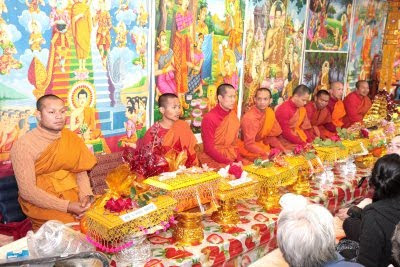http://www.chinaview.cn/
2009-11-02
(Posted by CAAI News Media)
YANGON, Nov. 2 (Xinhua) -- Myanmar has been launching a series of cultural exchange activities since early this year to mark the Japan-Mekong exchange year to showcase the cooperation and friendship between Japan and Myanmar and such activities continued up to the end of the year.
Myanmar is a member of the six-country Greater Mekong Subregion (GMS)-Economic Cooperation. The others sharing the Mekong River are China, Cambodia, Laos, Thailand and Vietnam.
The GMS has designated the year 2009-2010 as GMS tourism year as part of its economic cooperation in the subregion.
In February this year, a Japan-Mekong exchange year was launched in Myanmar's former capital of Yangon and the event was marked with joint performance by Japanese and Myanmar artists.
As part of the Japan-Mekong exchange year program, a Japanese film festival was held in Yangon in early January this year. Four Japanese films, namely "Nabbie's Love", "Water Boys", "Linda Linda Linda" and "Ping Pong Bath Station" were introduced in the festival.
The Japanese film festival continued in Myanmar's second largest city of Mandalay in February.
Besides, an annual Japanese Literature translation contest at three levels took place in Yangon and Mandalay in the same month.
Under the program, another music concert involving Myanmar and Japanese artists was also launched in Yangon in March by the Myanmar Gitamate Music Band which was invited to perform at the opening ceremony of the Japan-Mekong exchange year program in the Japanese capital of Tokyo in January.
In June, Myanmar professional photographers were invited to take part in a Mekong photo contest, aimed at exploring the beauty and culture of the GMS.
Sponsored by the Mekong Tourism Coordination Office (MTCO), the contest, which was the first of its kind under the title of "Explore Mekong", was also aimed at boosting the region's tourism sector and enhancing the world's impression over the cultural heritage of the GMS member countries.
More programs, which followed in the next half of this year, included Karatedo contest, piano and flute concert, Ekabana flower decoration show, Japanese fashion show, Japanese song singing contest, Judo contest and film festivals.
As a special program, Myanmar non-professional directors have been invited to take part in a Mekong three-minute short film contest.
It was prescribed that directors under 25 years old from the six Mekong member countries of China, Cambodia, Laos, Myanmar, Thailand and Vietnam are invited.
The 20 winners' video feature films, designated to be shot by home video cameras, will be shown as part of the program of the Children Day Festival in Kagoshima, Japan scheduled for Dec. 5 this year.
Moreover, a Japanese language proficiency test for Myanmar citizens will also take place on Dec. 6 to boost language communication between peoples of Myanmar and Japan.
Sponsored by the Japanese Embassy and the Myanmar Association of Japan Alumni (MAJA), the 11th Japanese language proficiency test covers four levels.
In previous cultural exchange programs between Myanmar and Japan, Japanese film shows were held annually in Yangon and Mandalay in the past few years, introducing Japanese movies to Myanmar audiences which featured comedy, cartoon, romance, samurai and detective.
The two countries also launched joint shooting of movie with the movie, "Thway" (blood), representing significantly as a joint production.
The film, which marked a symbol of Japan-Myanmar friendship and contributes to the promotion of the two countries' friendly relations, was created by Japanese producer and director Koji Chino and was based on a famous Myanmar novel of the same title written by Journal Gyaw Ma Ma Lay.
The movie involved both Myanmar and Japanese actors and actresses.
Meanwhile, in June this year, Japanese Deputy Foreign Minister Kenichiro Sasae visited Myanmar as part of its efforts to boost exchange between Japan and Mekong countries.
The soon visit to Japan by Myanmar Prime Minister General TheinSein and his attendance at the first Mekong-Japan Summit to be held in Tokyo is believed to promote the regional exchange to a new height.
Editor: Anne Tang










































